How to disable web results in Windows search
Table of Contents
How to disable web results in Windows search. You must have noticed that as soon as you start typing in the search box on your Windows 10 or 11 computer, Windows Search will display web results. You can find a way to disable web results in Windows search in the following 3 different methods.
Disable web results in Windows search
By default, the search box on Windows 10 and 11 computers is designed to provide suggestions from the Internet and the results of local searches performed on the computer’s hard drive.
This happens because Windows Search is built on top of Microsoft’s Bing search engine, which also supports Internet Explorer and Microsoft’s Edge browser.
Although web results or suggestions may be useful in some situations, they are completely unnecessary when users are only trying to find files, programs, or applications located on the computer’s local hard drive.
Another good reason to disable web advice is to speed it up by restricting Windows search to the local hard drive on the computer.
Restrict Windows search index to local hard drive
An easy way to prevent Web results from appearing in Windows Search is to restrict Windows Search to only the hard drive on your computer. If this does not work, try a registry repair.
Go to Settings > Search > Permissions & History and click on the Searching Windows link in the right-pane. On Searching Windows screen. scroll down and click on Advanced Search Indexer Settings.

On the next screen, click on the Modify button.
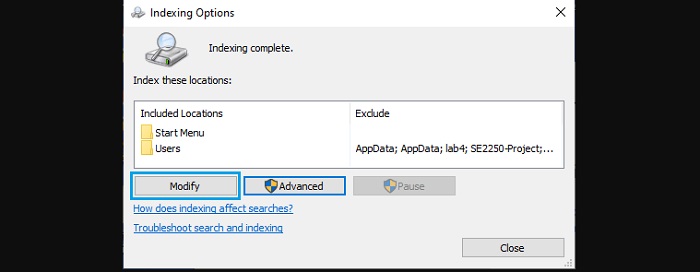
On the Indexed Location screen, click on Show All Locations button. On the next screen, uncheck Internet Explorer History and select your Hard Disk.
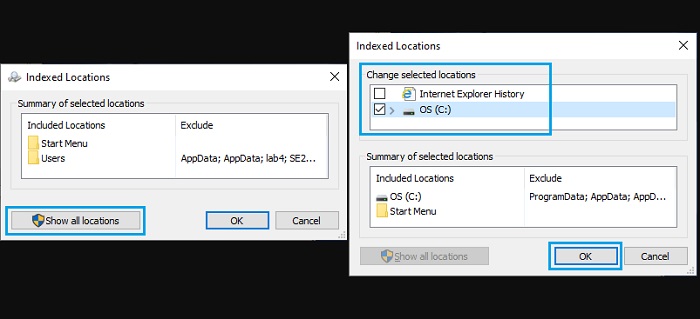
Click on OK and allow Windows to Rebuild the Search Index.
Disable Web Results in Windows Start Menu Search
Right-click on the Start button and click on Run. In the Run Command window, type Regedit and click on OK. On the Registry Editor screen, navigate to HKEY_CURRENT_USER > SOFTWARE > Microsoft > Windows > CurrentVersion > Search.
Right-click on the Search Folder and select the New > DWORD (32-bit) option in the contextual menu.
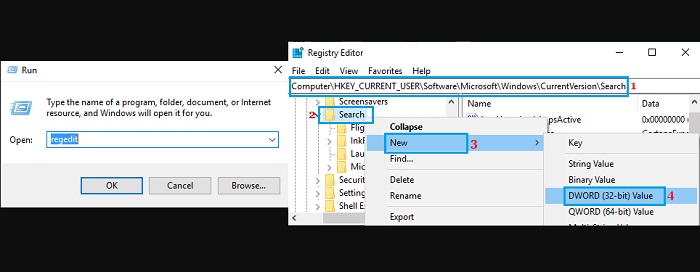
Name the newly created DWORD as BingSearchEnabled and double-click on it. On Edit DWORD pop-up, make sure the Value data field is 0 and click on OK.
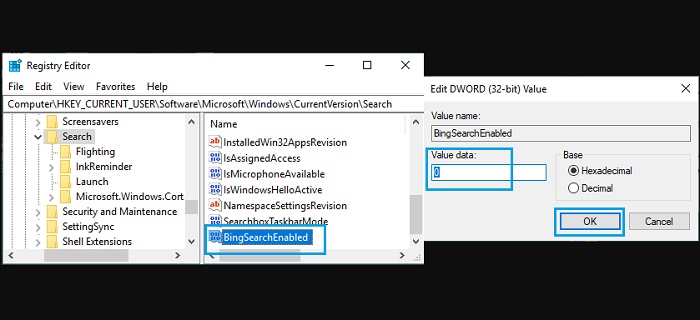
Next, double click on CortanaConsent entry. On Edit DWORD pop-up, type 0 in the Value Data field and click on OK.
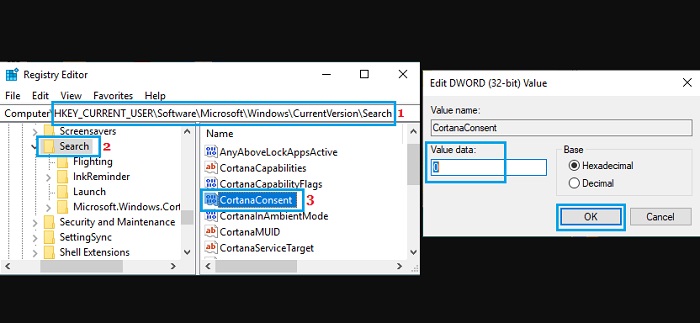
Note: If you don’t see CortanaConsent, use the steps used to create BingSearchEnabled to create this entry.
After making this change to the registry, your Windows 10 or 11 computer will no longer display search results from the Internet, and all your searches in the Start menu search bar will be limited to your computer.
In case required, you can always bring back the web search results by opening Registry Editor and changing BingSearchEnabled and CortanaConsent Data Values to 1.
Prevent Web Suggestions in Windows Explorer Using Registry
Right-click on the Start button and click on Run. In the Run Command window, type Regedit and click on OK to open the Registry Editing screen. On the Registry editor screen, navigate to HKEY_CURRENT_USER > Software > Policies > Microsoft > Windows and create a New Key by right-clicking on Windows and choosing New > Key in the contextual menus.
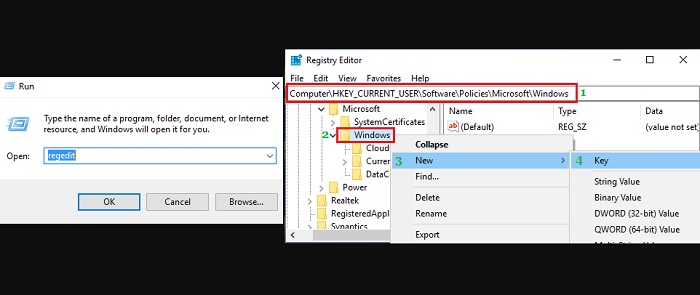
Name the New Key as Explorer. Next, right-click on Explorer select New > DWORD (32-bit) Value in the contextual menu. Name this newly created DWORD as “DisableSearchBoxSuggestions” and hit the Enter Key.
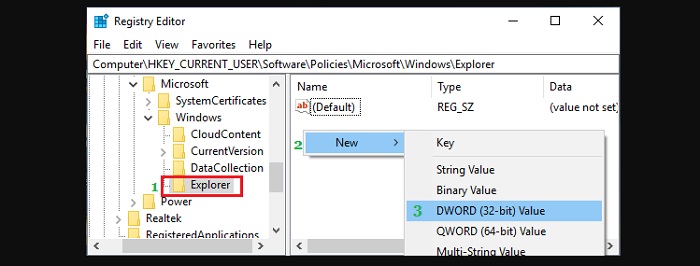
Now, Double-click on the newly created DisableSearchBoxSuggestions DWORD. In the pop-up, change the Data Value for DisableSearchBoxSuggestions to 1 and click on OK.
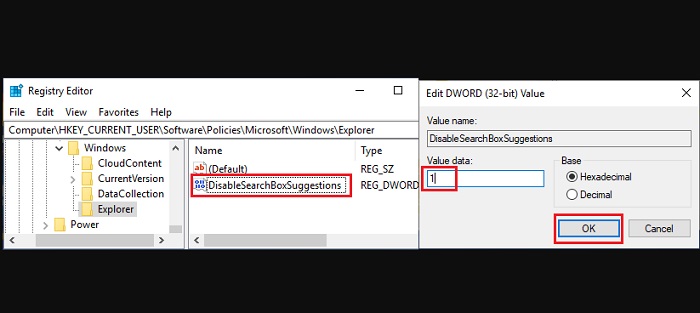
Note: The above steps only disable the file explorer search history for the current user account. Other user accounts on your computer will still show web search results.
To disable web search suggestions for other user accounts, you must log in to each of these accounts and repeat the steps above.
More: How to Fix Start menu is unresponsive in Windows 11.

